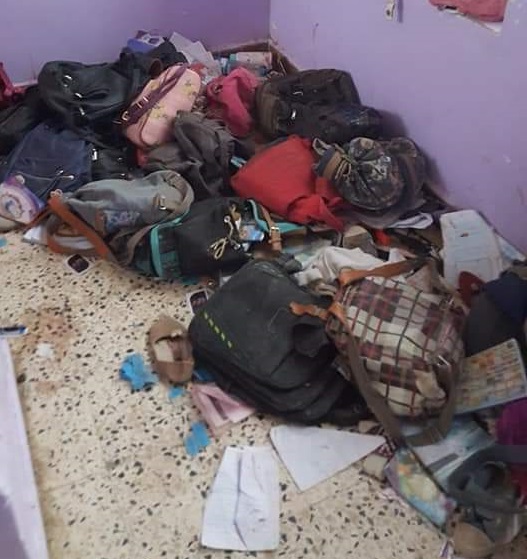At least 13 people, including seven children, were killed and more than a hundred others were injured on April 7, after a large explosion at a warehouse in the Yemeni capital Sanaa. According to reports, the explosion was caused by airstrikes launched by the Saudi Arabia-led coalition. Some reports suggested that around 11 children have been massacred in the airstrike.
The blast impacted the nearby school, where the children were present. The explosion took place in the eastern Sawan neighborhood of the city, which has been under the control of the Ansar Allah (known in the international media as the ‘Houthis’) since 2014.
Fatehiya Kahlani, the principal of Al Rei school, said that the airstrikes caused widespread panic among the large school population of 2,100 students, with many of them crying and shouting in its aftermath. She stated that the school building was completely destroyed, and many of the students that were killed and injured were girls. The injured, she added, are being treated at a hospital.

Saudi Arabia, backed by the United States, Britain and France, is leading an international coalition force in favor of forces loyal to the former president Abdrabbuh Mansur Hadi, who was deposed by Houthi forces in 2015. The coalition has been accused of acts of war crimes in Yemen, including bombing of schools and hospitals, killing hundreds of civilians.
The airstrikes come just days after the US House of Representatives, following the lead of the US Senate, voted to end the US support and involvement in the war in Yemen. The house had voted in favor of the bill last Thursday, with a vote tally of 247 to 175 votes and 16 Republicans voting to pass the bill along with the Democrats. The bill was passed under the War Powers Act of 1973, a law introduced during the Vietnam war to curb the power of a president to wage war or deploy armed forces of the United States without congressional approval. This was the first time that the US congress invoked the act to pass a resolution of this kind. The Republican-controlled US Senate had passed the resolution earlier in March, with a 54 to 46 bipartisan vote.
US president Donald Trump has already threatened to veto the resolution, a veto that neither of the houses of congress have the numbers to override. Slamming the bill, a statement by the White House said that the bill raises serious constitutional concerns. It also argued that the US support for the Saudi-led coalition does not constitute engaging in hostilities, and therefore the War Powers Act does not apply. The White House had previously warned that the resolution would harm bilateral relationships in the region.
The US has been providing air to air refueling of jets, reconnaissance, targeting and intelligence information to the Saudi-led coalition as it wages war against the Ansar Allah in Yemen. The coalition has conducted more than 19,000 air raids in Yemen. Humanitarian groups estimate that close to 60,000 civilians have been killed in the war and as many as 85,000 children have starved to death. Millions are on the verge of famine, with the latest estimates suggesting that 22 million Yemenis are dependent on humanitarian and medical assistance for their survival. The United Nations has termed it the world’s worst humanitarian crisis.





